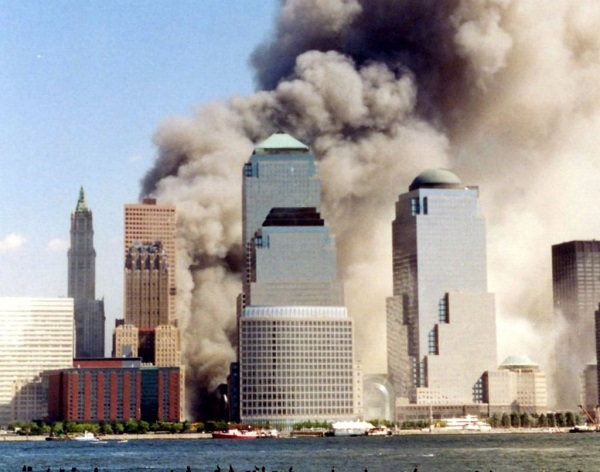
New York, At 8.46 a.m. on Wednesday, time will stand still across the US when the nation remembers the terrorist attacks that killed 2,996 people 18 years ago.
At least 117 people of Indian origin will be among those remembered when the names of the 9/11 victims are solemnly intoned during the annual commemoration of the Al Qaeda terror attack which will start at the precise time when the Northern Tower of the World Trade Center was struck by a hijacked jetliner.
That was the moment that profoundly changed nation and brought South Asia and international terrorism to the fore in the US and across the world.
That was the moment the US lost its innocence and realised its vulnerability to large-scale terrorism from abroad — like India and other countries had been experiencing.
The true horrors of terrorism traceable to Pakistan was brought home to the US by the war on America launched that day by the Al Qaeda, which worked under the patronage of the Taliban that controlled Afghanistan and Pakistan.
Besides the twin towers of the World Trade Centre, the citadel of the US military, the Pentagon, was attacked and another aiming for either the White House or the Congress was thwarted when passengers overpowered the hijackers and crashed the jet in a field.
Facing the wrath of Washington, the military dictator Pervez Musharraf switched sides outwardly allowing the US access to facilities and routes in the nation as it rained vengeance on Al Qaeda and the Taliban.
But playing a double game Pakistan proteted Osama bin Laden, the leader of the Al Qaeda, and the leadership of the Taliban, giving them safe havens to continue their attacks on the US and allied troops in Afghanistan and run terrorist operations around the world.
It was nearly a decade later that the US would track him down to his Pakistan home near major military facilities in Abottabad and take him down.
Meanwhile, with Pakistan’s role as the international patron of terrorism was exposed to the world and it began a spiral of distrust and isolation.
The recognition of the shared dangers of terrorism by the administration of President George W. Bush, who had assumed office in January 2001, led to the US designating anti-India terrorist groups like Lashkar-e Taiba as terrorist organisations and cooperating with New Delhi to a greater degree to fight terrorism.
While having to maintain its ties to Pakistan because of its chokehold on some US supply lines to allied forces fighting in Afghanistan, Bush grew the ties to India, the high point of which was the civil nuclear cooperation agreement.
And it also marked the end to the hyphenation of India and Pakistan — treating them as equals and dealing with them as if the relations were an interconnected triangle.
Although there was some talk in 2001 of India joining the US intervention in Afghanistan, then-Prime Minister Atal Bihari Vajpayee wisely desisted the move.
The wisdom of the decision is clear to see now with the US coming around a full circle and trying to make peace with the Taliban after being bogged down there for nearly 18 years in what is now America’s longest war after Bush’s misjudgements and a diversion into Iraq.
The peace negotiations again hit the shoals of deceit when the Taliban continued to attack US troops, killing one of them last week, while a deal was in it its final stages.
President Donald Trump cancelled a grand show he had planned to showcase an agreement that would have enabled him to redeem an election pledge of ending the Afghanistan war and bringing US troops home.
In a way it was a reprise of the 1980s polices under then-President Ronald Reagan, who collaborated with Pakistan in trying to end the Russia occupation of Afghanistan and was led by another Pakistani dictator Zia ul-Haq into creating the forces of Islamic terrorism that would emerge as a global force to haunt the US.
While Trump held back the Taliban deal, it is not entirely dead and, as before 2001, Pakistan has tried to take advantage of the situation, this time dangling its leverage with the Taliban.
As far as the impact of 9/11 on Indians in the US is concerned, diplomats at the Indian consulate in New York in 2002 said the number of victims of Indian-descent was 117 among the 2,606 killed at the World Trade Center.
Officially, the number of India citizens killed is 41, with others holding other passports.
Indians in the US were affected violently when they were misidentified as people with links to the Islamic terrorists.
Sikhs with their turbans and beards bore the brunt of the attacks fueled by insane anger.
Four days after 9/11 Balbir Singh Sodhi was killed in Mesa, Arizona, by a hate-crazed man who mistook him for an Arab Muslim.
Some Indians have continues to face harassment and attacks because of mistaken identity.
As recently as April an Indian family was the victim of an identity confusion when a father and two children were run over by a man driving a car who thought they were Muslims.









